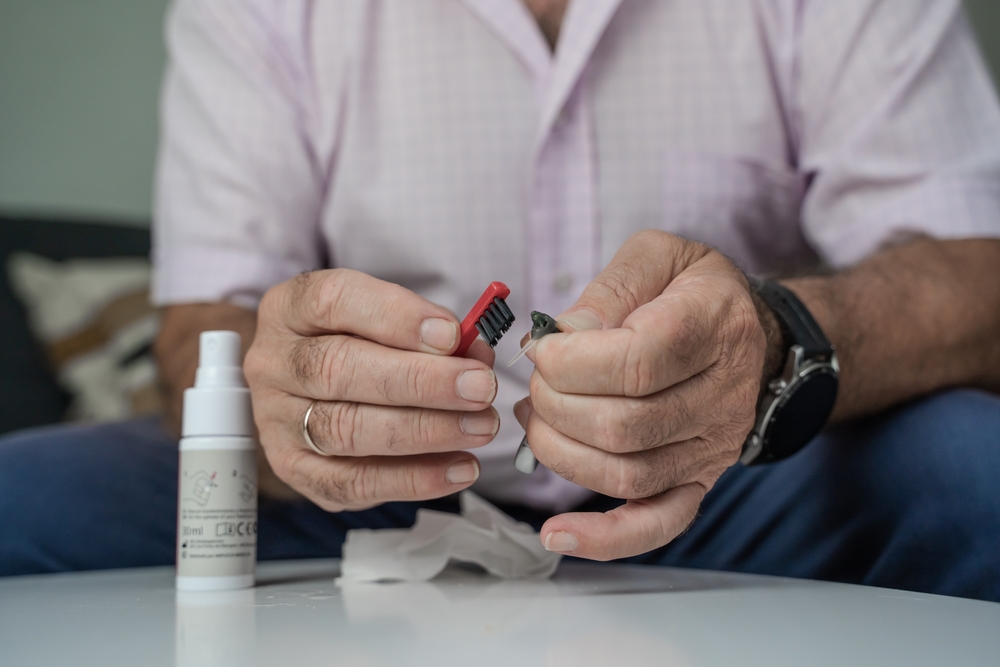These days, the mobile phone network is much more reliable (and there’s a lot less static involved).But that doesn’t mean everyone can hear you all the time. In fact, there’s one population for whom using a phone isn’t always a reliable experience: those with hearing loss.
Now, you might be thinking: there’s an easy solution for that, right? Why not use a pair of hearing aids to make your phone conversations a little easier? Well, that’s not… exactly… how it works. It turns out that, while hearing aids can make in person conversations much easier to manage, there are some challenges associated with phone-based conversations. But there are some tips for phone calls with hearing aids that can help you get a little more out of your next conversation.
Why hearing aids and phone calls don’t always play nice
Hearing loss generally isn’t sudden. It’s not like someone just turns down the overall volume on your ears. You tend to lose bits and pieces at a time. This can make it hard to even notice when you have hearing loss–especially because your brain tries really hard to fill in the gaps with context clues and other visual information.
So when you get on a phone, all of that contextual data disappears. There’s no extra information for your brain to work with. There’s only a very distorted voice and you only hear bits and pieces of the spectrum of the other person’s voice.
How hearing aids help
Hearing aids will help with this. They’ll especially help your ears fill in many of those missing pieces. In fact, you may be able to improve phone clarity with hearing aids. But there are some unique accessibility and communication difficulties that arise from using hearing aids while talking on the phone.
For example, placing your hearing aids next to a phone speaker can create some harsh speaker-to-speaker interference. This can make things hard to hear and uncomfortable. Plus, you still don’t have any of those visual cues you’re used to seeing.
Tips to improve the phone call experience
So, what can you do to overcome the challenges of using a phone with hearing aids? Well, there are a few tips that most hearing specialists will recommend:
- Try using speakerphone to conduct most of your phone calls: This will prevent the most serious feedback. There may still be some distortion, but your phone call should be mostly understandable (if not necessarily private). Knowing how to hold the phone better with hearing aids (that is, away from your ears) is critical–and speakerphone is how you accomplish this!
- Connect your phone to your hearing aid via bluetooth. Wait, can hearing aids connect to smartphones? Yes they can! This means you’ll be able to stream phone calls directly to your hearing aids (if your hearing aids are bluetooth capable). This can eliminate feedback and make your phone calls a little more private, so it’s a good place to start if you’re having trouble on your phone.
- Try to take your phone calls in a quiet area. The less noise around you, the easier it will be to pick out the voice of the person you’re on the phone with. This can make voices easier to hear and pick out. Limit background noise and hearing aids during phone calls will work so much better.
- Be honest with the person you’re talking to on the phone: If phone calls are difficult for you, it’s okay to admit that! And if you’re having trouble hearing, it’s okay to admit that too! Many people will be fine moving the conversation to text message or email or video calls (or just, you know, being a little extra patient).
- Use video apps: Face-timing someone or hopping on a video chat can be a great way to help you hear better. It’s not that the sound quality is somehow better–it’s that your brain has access to all of that fantastic visual information again. And this can help you add context to what’s being said.
- Use other assistive hearing devices: There are other assistive devices and services that can help you hear better during a phone conversation (including many text-to-type services).
Finding the right set of solutions will depend on what you use the phone for, how often you’re on the phone, and what your overall communication needs are like. With the right approach, you’ll have the tools you need to start enjoying those phone conversations again.
If you need more guidance on how to use hearing aids with your phone, search for a hearing healthcare provider near you.



